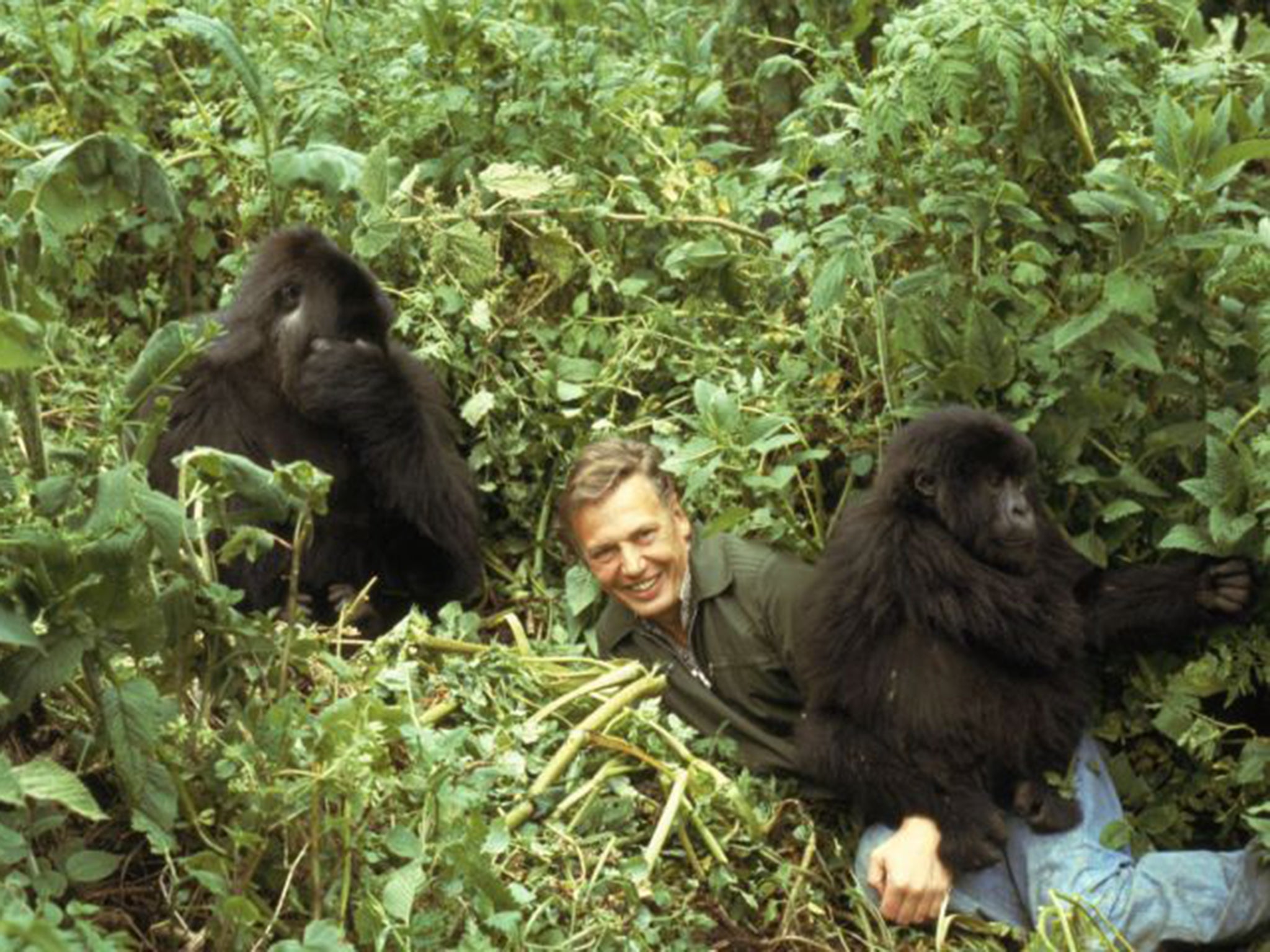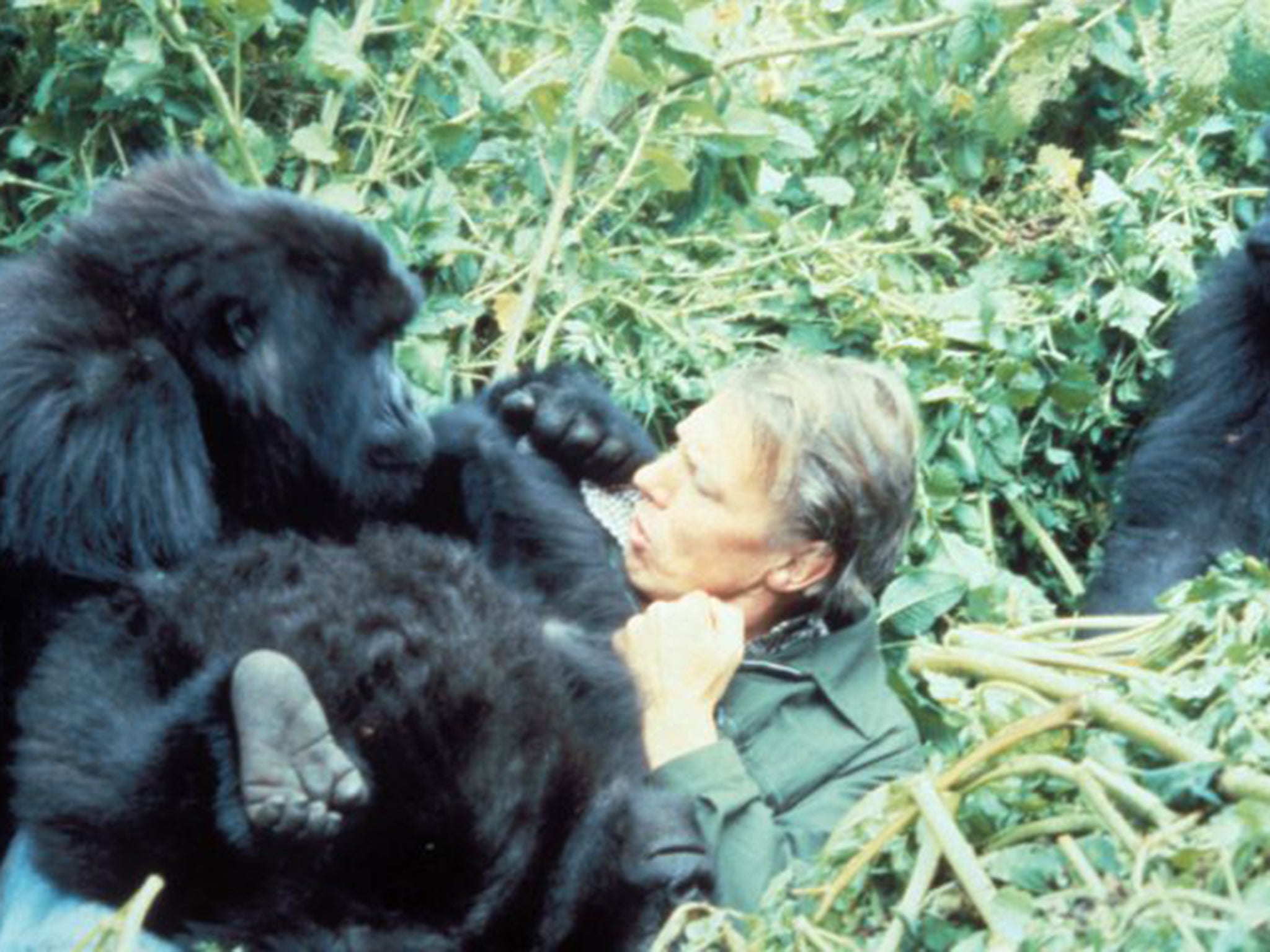Gorillas nearly missed: BBC producers didn't want to broadcast Sir David Attenborough's famed Rwandan encounter
Producers thought it was too trivial for the landmark series Life on Earth, dismissing it as 'Johnny Morris stuff'

Your support helps us to tell the story
From reproductive rights to climate change to Big Tech, The Independent is on the ground when the story is developing. Whether it's investigating the financials of Elon Musk's pro-Trump PAC or producing our latest documentary, 'The A Word', which shines a light on the American women fighting for reproductive rights, we know how important it is to parse out the facts from the messaging.
At such a critical moment in US history, we need reporters on the ground. Your donation allows us to keep sending journalists to speak to both sides of the story.
The Independent is trusted by Americans across the entire political spectrum. And unlike many other quality news outlets, we choose not to lock Americans out of our reporting and analysis with paywalls. We believe quality journalism should be available to everyone, paid for by those who can afford it.
Your support makes all the difference.It is the most famous sequence ever captured on a natural history film – the unforgettable moment when Sir David Attenborough becomes the plaything of a baby gorilla.
Now it has emerged the scene was nearly left on the cutting-room floor because BBC producers thought it was too trivial for the landmark series Life on Earth.
Sir David’s encounter with Rwanda’s mountain gorillas has entranced 500 million viewers worldwide. The series was first broadcast in the UK in 1979 and is regularly voted one of television’s most memorable moments.
Sir David had wanted to use the gorillas as a backdrop while he talked about the evolutionary advantage of the opposable thumb. But he came face-to-face with the adult female and won the gorillas’ trust by standing his ground and whispering an ad lib to camera. When Sir David returned the next day, the female and two young gorillas began to groom and play with him, pawing his face and taking his shoes. In his memoirs, Sir David described it as “one of the most exciting encounters of my life”.
But the sequence caused a huge bust-up and was nearly cut from the final programme, a new book on the BBC reveals.
“One of the most memorable sequences in Life on Earth was shot accidentally, and the team had a row about it,” Jean Seaton writes in Pinkoes and Traitors: The BBC and the Nation, 1974-1987.
“Attenborough is treated by a group of young gorillas as a plaything, or even as a being they might play with. The unit had set out to do a serious piece about the evolutionary advantage of opposable thumbs. When the gorillas appeared and started to play, no one thought that was what they were there to film.
“[Cameraman Martin] Saunders captured the ‘tiny sequence by accident’ while getting on with the outline work of being a cameraman, dealing with the unpredictability of wildlife. When Saunders saw what was happening he took his own initiative and closed in on a profoundly moving encounter. The director was dismissive of it as ‘Johnny Morris stuff’; the rows went on into editing, several people wanted to cut it out.”
Morris was a children’s presenter whose programme Animal Magic, which invested animals with human characteristics, was axed by the BBC in 1983 for being insufficiently educational.

Ms Seaton, who was given access to the BBC’s written and oral history archives for the book, says the corporation would have made a huge error if it had axed the gorilla sequence. “It is a moral moment: providing an Elysian metaphor of the meeting of the world of animals and the world of man with no destruction or interference. It is a little glimpse of paradise that is at the heart of the series. It was absolutely heart-stopping television.”
The book also reveals how Sir David stood up to American financiers in order to realise his vision for Life on Earth. The £1m series was made with a £300,000 investment from Warner Brothers.
“Attenborough had a compulsive vision … No talking heads, his own narrative driving the entire series … But the rows were intense,” it says. “Attenborough single-mindedly refused any American contract that proposed (as was normal) to insert another presenter into the footage, or replace his voice. The aim was strategic, long-term, to become a recognised international figure: even if the production lost initial investment.”
Wendy Darke, the head of the BBC’s award-winning Natural History Unit, said: “I grew up as part of the generation inspired by Life on Earth. I didn’t know that the gorilla scene was considered too populist. Johnny Morris was a legend. It’s good that the scene stayed in and also that we’ve moved on.”
Join our commenting forum
Join thought-provoking conversations, follow other Independent readers and see their replies
Comments